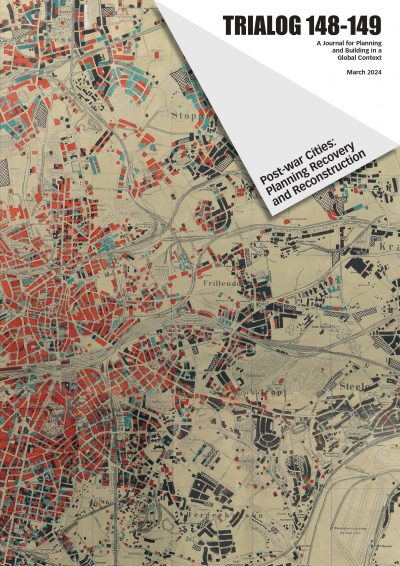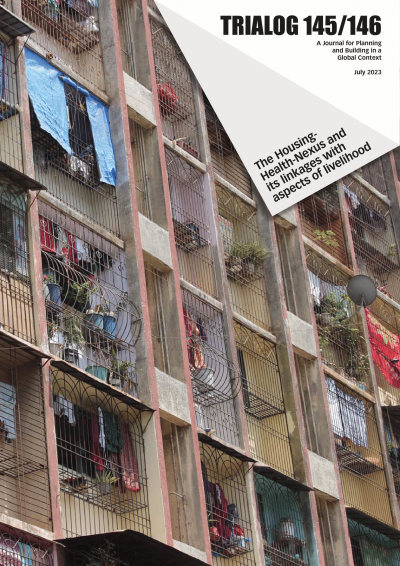TRIALOG – A Journal for Planning and Building in a Global Context
A journal for professionals in the fields of architecture, urban and regional planning, geography, sociology, anthropology, and economics. Dedicated to global issues and development cooperation, TRIALOG assists the assessment of research of relevance as well as the exchange of professional experiences in the fields of planning and building, with a focus on Asia, Africa, and Latin America. TRIALOG: A magazine for the open, independent and interdisciplinary discussion and documentation of trend-setting and alternative approaches.
TRIALOG e. V. – Association for Scientific Research into Planning and Building in the Developing World
The association publishing the journal TRIALOG is an independent forum of academic, consultancy, and practical professionals from the spheres of planning and building in a global context. The membership consists primarily of architects, urban and regional planners, sociologists, geographers, ethnologists, and economists from, for the most part, the German-speaking world.
Call for Editors
TRIALOG offers the opportunity to submit suggestions for topics of thematic issues and looks for volunteers willing to take responsibility as (co-)editors of some of its forthcoming journals.
Interested parties are invited to send an email with their suggestions and professional profile to the Coordinating Editor of TRIALOG Journal at editor@trialog-journal.de
Call for Abstracts
We are looking for contributions for the thematic issue “Subterranean solutions for climate-resilient
future.”
Interested authors are invited to submit an abstract by June 10, 2024. For further information please download the Call for Abstracts.
Current issues
TRIALOG 148/14903/2024Post-war Cities: Planning Recovery and ReconstructionMore information
Free Download
TRIALOG 145/146The Housing-Health-Nexus and its linkages with aspects of livelihoodMore information
Download Preview
Free download from TRIALOG Issue 140/141 ‘Cities and Displacement’
Group Interview with Hamidul Hoque Chowdhury, Ullrich Sierau and Patrick Lokewan Nabwel by Eva Dick and Einhard Schmidt-Kallert. ‘Local Government and the Integration of Refugees: Experiences from Bangladesh, Kenya and Germany‘.


